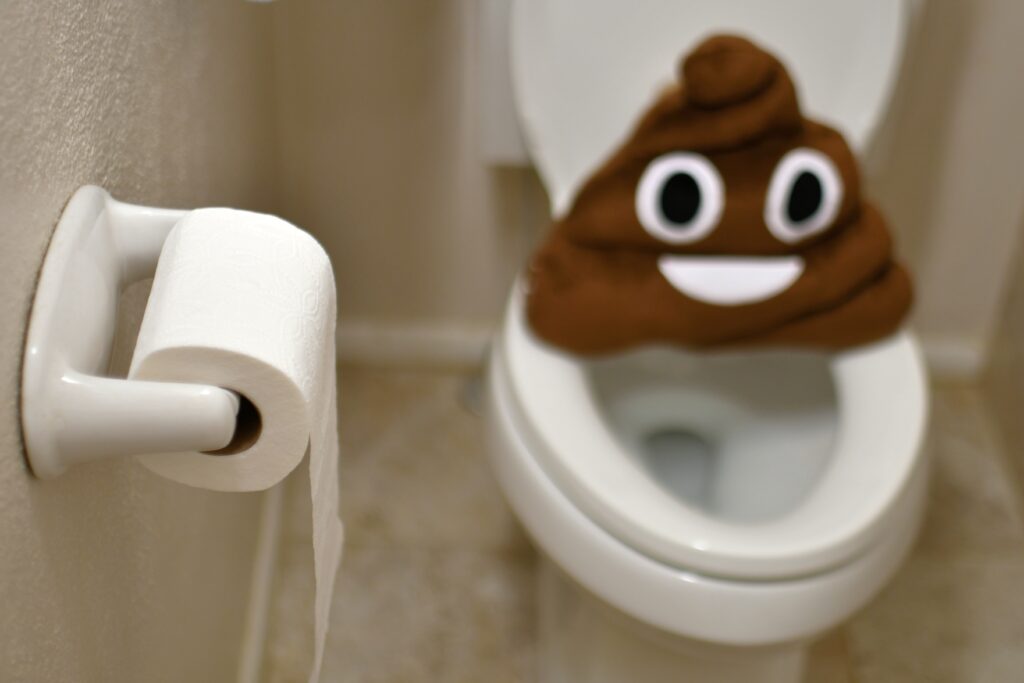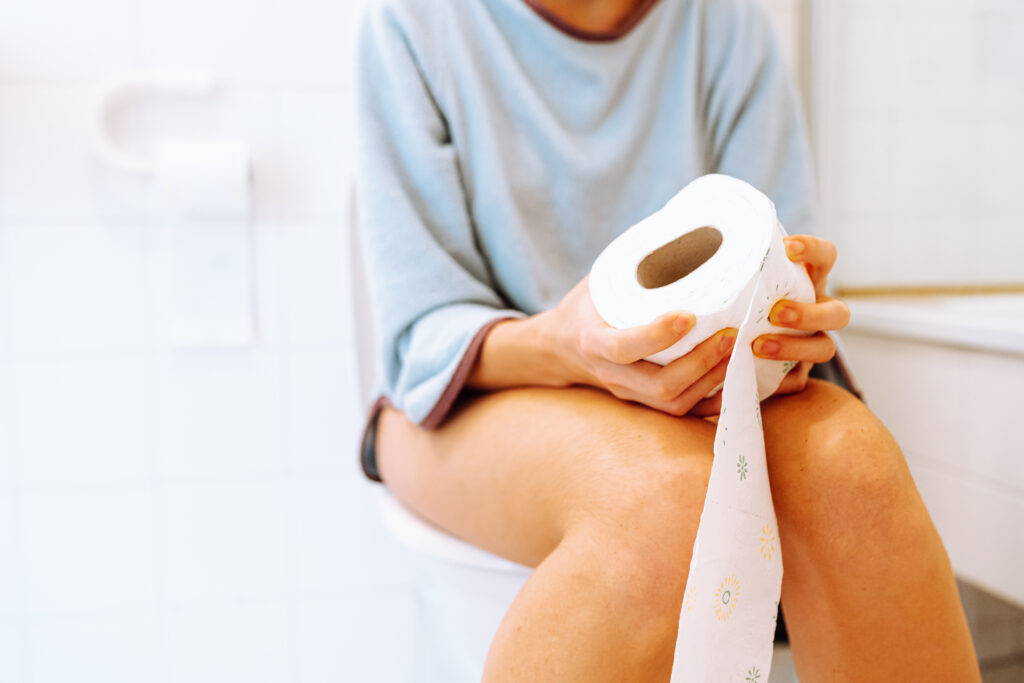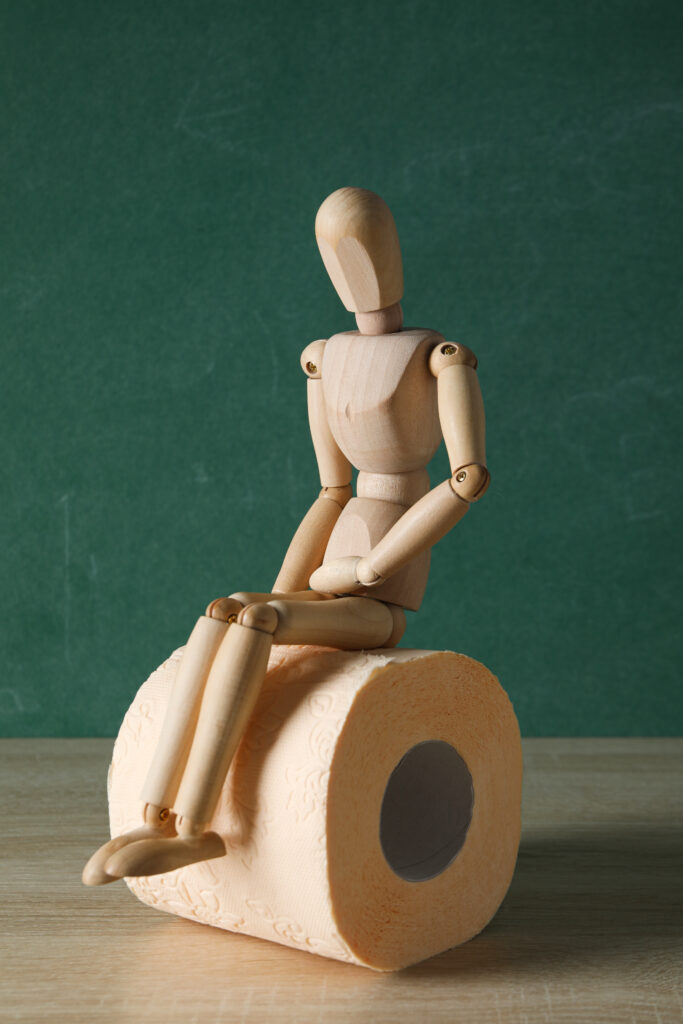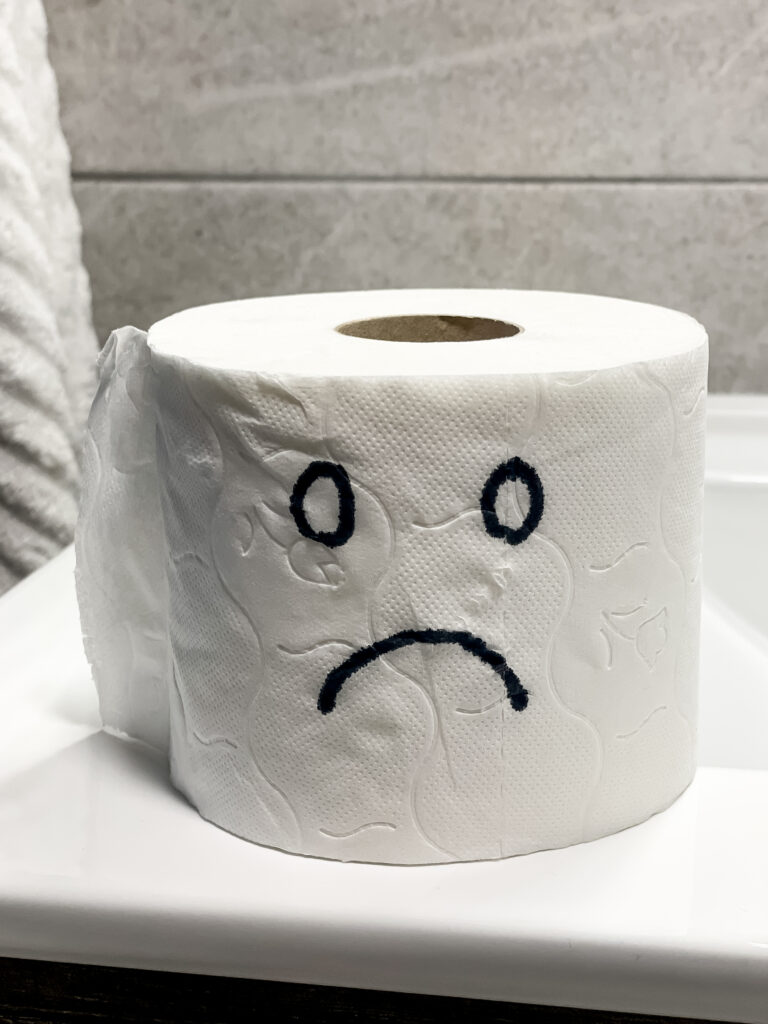–Written by Marusa Zamorano, MD, General Surgeon Specialised in Abdominal Surgeries, endoscopies and proctology–
Constipation – it’s a word that many of us shy away from, but it’s a common health issue that affects countless individuals. Despite the awkward nature of the topic, it’s essential to address it head-on because understanding is the first step to overcoming this struggle.

Understanding Chronic Constipation:
The Basics
Simply put, chronic constipation refers to infrequent bowel movements or difficulty passing stools that persist for several weeks or more.
Constipation is defined as having fewer than three bowel movements per week. Occasional constipation is common; however, some individuals face chronic constipation, impacting their daily tasks due to the discomfort and inconvenience it causes.
Chronic constipation could even lead to excessive straining to empty the bowel, which can result in other health complications. In some cases, the underlying cause remains unknown, making treatment a bit more challenging.

The Symptoms:
How Do You Know If It’s Chronic Constipation?
If you’re experiencing the following signs and symptoms, you may be dealing with chronic constipation:
- Fewer than three stools per week
- Feeling a blockage in your rectum preventing bowel movements
- Incomplete evacuation of stools
- Lumpy or hard stools
- Difficulty or straining during bowel movements
- Needing manual help to empty your rectum
Notably, these symptoms should persist for at least three months for the condition to be considered chronic.


When Should You Seek Medical Help?
Should you notice persistent, unexplained changes in your bowel habits, it’s time to consult a healthcare professional. Don’t procrastinate; your health is of highly importance.
The Causes:
Why Does Chronic Constipation Happen?
Constipation primarily happens when waste or stool moves too slowly through the digestive tract, or when stool cannot be effectively eliminated from the rectum. This delay can cause the stool to become hard and dry, leading to constipation.
The causes of chronic constipation are many.
- blockages in the colon or rectum to issues with the nerves around these areas.
- Certain factors may increase the risk of chronic constipation, including age, gender, dehydration, a low-fiber diet, lack of physical activity, certain medications, and mental health conditions.
- Difficulty with the muscles involved in bowel movement or conditions affecting the body’s hormones can also contribute to constipation.


Diagnosis:
How Is Chronic Constipation Identified?
The diagnostic process usually involves:
- a general physical exam,
- a digital rectal exam,
- some other specific tests and procedures to detect the cause. These could include blood tests, X-rays, colonoscopy, anorectal manometry, balloon expulsion test, colonic transit study, and defecography.

Prevention:
How Can You Keep Chronic Constipation At Bay?
The best way to avoid chronic constipation is through proactive measures:
- Eat high-fiber foods and Limit too many processed products, dairy, and meat
- Keep your body well-hydrated
- Maintain an active lifestyle
- Try to manage stress levels
- Respond to nature’s call – don’t ignore the urge to pass stool
- Regularize your bowel movement, especially after meal.



The Complications:
What Are The Risks Of Chronic Constipation?
Chronic constipation isn’t just about discomfort; it can also lead to complications if not managed correctly:
- Hemorrhoids: Swollen veins in your anus caused by straining during bowel movements
- Anal fissures: Tiny tears in your anus caused by large or hard stools
- Fecal impaction: Hardened stool that gets stuck in your intestines
- Rectal prolapse: Straining can cause a small part of the rectum to protrude from the anus

Treatment:
How Can You Alleviate Chronic Constipation?
- For many, DIETARY & LIFESTYLE CHANGES. dietary and lifestyle changes are the first line of treatment to accelerate the speed at which stool moves through the intestines. These may include increasing your fiber intake, regular exercise, and not ignoring the urge to pass stool.
- If these changes don’t bring relief, there’s an array of OVER-THE-COUNTER & PRESCRIBED MEDICATION such as fiber supplements, stimulants, osmotics, lubricants, stool softeners, and more specialized medications.
- In some cases, you might need to work with a therapist for BIOFEEDBACK TRAINING to learn to relax and tighten the muscles in your pelvis. This can facilitate easier passage of stool.
- In rare cases where other treatments prove ineffective, SURGERY could be considered, especially if chronic constipation is caused by a blockage, rectocele, or stricture.


Chronic constipation can be an inconvenient and discomforting condition, but understanding it, recognizing the symptoms, and knowing the treatment options can make it manageable. Remember, every person’s body is unique, and what works for one may not work for another. Therefore, always seek professional medical advice if you’re facing persistent issues with constipation.
Comments +